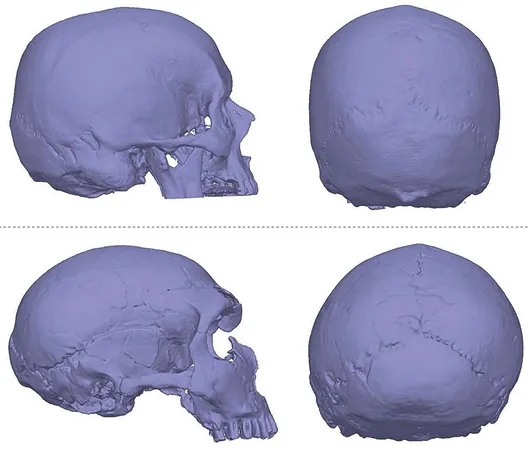
Revolutionary Study Reveals How Tracking Superbugs in Real Time Could Transform Patient Care
2025-06-12
Author: Arjun
Are Superbugs Evolving Right Inside Us?
In a groundbreaking revelation, researchers have uncovered that bacterial "superbugs" can rapidly gain resistance to antibiotics while actively infecting a host. A new study proposes that monitoring these genetic changes in real time could significantly enhance treatment strategies for these dangerous infections.
How Real-Time Tracking Could Save Lives
According to study co-author Dr. Stefano Giulieri from the Doherty Institute in Melbourne, this research is the first to demonstrate that real-time tracking of bacterial evolution through genome sequencing empowers doctors to stay ahead of infections. With this cutting-edge tool, medical professionals can tailor treatments to combat the specific bacterial strains affecting their patients.
The Cunning Staphylococcus Aureus: A Known Foe
The study, featured in the esteemed journal Nature Communications, focused on Staphylococcus aureus—a bacteria that resides harmlessly in about 30% of the population. However, when it proliferates and leads to severe infections, it can turn into a superbug, resistant to conventional antibiotic treatments.
Identifying Infection Types: Key to Effective Treatment
Differentiating between persistent and recurrent infections is crucial for effective treatment. A persistent infection means a patient tests positive even after several days of antibiotics, while a recurrent infection shows initial improvement but returns, possibly with a new bacterial strain. Understanding these distinctions aids doctors in prescribing the right medications.
New Insights Through Genetic Analysis
The research team analyzed samples from 11 patients suffering from antibiotic-resistant S. aureus infections, identifying 60 distinct bacterial strains. By utilizing genetic analysis, they uncovered adaptations in about one-third of the strains that indicated potential resistance traits.
Can Knowledge Change the Course of Treatment?
To test the practical application of their findings, the scientists surveyed 25 infectious disease specialists worldwide, presenting clinical cases with and without insights from the evolutionary analysis. Astoundingly, 34% of physicians altered their antibiotic treatment strategies when equipped with evolution reports, indicating that real-time genetic insights could indeed shift clinical approaches.
A Step Towards Future Solutions
Despite some limitations, such as a small sample size, this study serves as a "proof of concept" for using genetic evolution tracking as a tool against superbugs. Dr. Quyen Nguyen from the University of Pittsburgh emphasized the potential of this technology in refining clinical decision-making processes.
Challenges Ahead: Cost and Efficiency
While the findings are encouraging, hurdles remain, particularly in the form of costs and the speed of genomic sequencing. Future investigations are essential to determine the best application methods and to assess effectiveness across larger patient demographics.



 Brasil (PT)
Brasil (PT)
 Canada (EN)
Canada (EN)
 Chile (ES)
Chile (ES)
 Česko (CS)
Česko (CS)
 대한민국 (KO)
대한민국 (KO)
 España (ES)
España (ES)
 France (FR)
France (FR)
 Hong Kong (EN)
Hong Kong (EN)
 Italia (IT)
Italia (IT)
 日本 (JA)
日本 (JA)
 Magyarország (HU)
Magyarország (HU)
 Norge (NO)
Norge (NO)
 Polska (PL)
Polska (PL)
 Schweiz (DE)
Schweiz (DE)
 Singapore (EN)
Singapore (EN)
 Sverige (SV)
Sverige (SV)
 Suomi (FI)
Suomi (FI)
 Türkiye (TR)
Türkiye (TR)
 الإمارات العربية المتحدة (AR)
الإمارات العربية المتحدة (AR)